Published
- 05:00 am

Financial technology company Circle believes the collapse of Silicon Valley Bank shows the need for its USDC stablecoin to be backed by the U.S. Federal Reserve with its U.S. dollars held at the Fed.
The Boston-based firm, which survived the collapse of Silicon Valley Bank (SVB) by shifting $3.3 billion of cash out of the struggling bank, told a Gillmore Centre for Financial Technology conference that it has long advocated for regulation that would make it a full reserve federally supervised institution.
At the conference held at Warwick Business School, Circle’s Tarleton Watkins said that one long-term option for retail stablecoins could involve a wholesale central bank digital currency (CBDC) at the Fed as a backing instrument, but in the meantime holding dollar reserves with the Fed rather than various financial partners would be a logical step in light of SVB’s failure.
The Senior Policy Specialist said: “In some ways, the events surrounding SVB act as a vindication of what we have been advocating for and that is a full Fed reserve model, where we could have access to risk-free cash.
“Although it is rare to have cascading bank failures, like in the financial crisis of 2008, this event with SVB put Circle through a very serious stress test, and we have come through it.
“This shows the resiliency of our business model and operational model. It also provides an excellent learning lesson and prepares us for the next steps as to where regulation should go.”
Circle’s USDC is backed equally by U.S. dollars on a one-to-one basis, with its dollars divided into 80 per cent of U.S. Treasury bills and 20 per cent cash. And it provides a monthly update on the reserves it is holding to peg Circle’s stablecoin at $1.
Indeed, Circle has been advocating for more regulation of stablecoins to give investors confidence and security.
Mr Watkins added: “Regulatory clarity for novel financial products and services like USDC can provide greater incentive for traditional financial institutions to incorporate digital assets onto their balance sheet.
“Digital currencies should be fully reserved with high quality liquid assets, i.e. cash and short duration government obligations.
“They should also be prudentially regulated and supervised by federal or national regulators at the central bank level or equivalent. Digital currency issuers should have direct access to accounts at the central bank.”
In a talk on CBDCs and stablecoins at the conference Ganesh Viswanath Natraj, Assistant Professor of Finance at the Gillmore Centre for Financial Technology, supported the idea of central banks and stablecoin providers working closer together.
He said: “If stablecoins can be backed by digital pounds or dollars held entirely with a central bank, the central bank could then regularly audit stablecoin providers’ reserves and impose capital requirements.
“If issuers were holding a certain percentage of liquid digital currency reserves at the central bank, this would ensure they had funds to process redemptions. The central bank could also provide insurance for customers and having its backing would reduce the risk of a run on the stablecoin.”
The conference also saw talks on DeFi and centralised finance from Anastasia Melanchrinos, of cryptocurrency market data firm Kaiko, on crypto derivatives by founder of analytics platform Block Scholes Eammon Gashier, and the growing metaverse industry by Nick Merritt, of metaverse platform Vault Hill,
While Amit Chaudhary, of DeFi app builder Polygon, revealed research on DeFi liquidations, and Cynthia Campbell, of Canada’s Alberta Securities Commission, and Amila Dissanayake, of crypto analysis firm Chainalysis, detailed the problem of fraud and scams in the crypto industry.
Ram Gopal, Academic Director for the Gillmore Centre of Financial Technology, which aims to become a global centre for excellence for fintech research and was established by Warwick Business School using a £3 million donation from Clive Gillmore, founder and Group CEO of Mondrian Investment Partners, said: “The conference showed the innovation and ingenuity at the heart of fintech and digital currencies, and how academic research centres like ours can play a vital role in this exciting sector.
“The Gillmore Centre will be at the heart of this new world, creating a place for researchers, policymakers, industry leaders and tech entrepreneurs to come together and explore new opportunities and ideas.”
Related News
- 04:00 am

Paymob, the leading financial services enabler in the Middle East, North Africa and Pakistan (MENA-P) and IKEA Egypt, a member of Al Futtaim group of companies, announce their partnership to offer customers a wider range of payment options.
This partnership will transform the checkout experience for IKEA customers in Egypt by introducing new innovative payment methods such as digital wallets, bank-offered easy payment plans (EPP) and consumer finance options, in addition to cards. This expanded selection of more flexible payment methods, powered by Paymob’s secure and trusted infrastructure, will make IKEA’s products more accessible to a greater number of consumers across Egypt.
Gillan Shaaban, Paymob’s CCO commented on the partnership, “As a trusted financial services partner, we have an established track record of enabling large global brands as well as local-home-grown businesses with the most innovative payment solutions that fuel sales and drive conversions. We are proud that IKEA chose Paymob to power their new payment options in Egypt. By addressing the unique needs and preferences of Egyptian consumers, IKEA is positioning itself as a retailer that truly understands and caters to their customers' needs.”
According to the Central Bank of Egypt (CBE) consumer finance is one of the fastest-growing segments in the banking sector. Bank EPPs give consumers the convenience of paying for purchases over time with monthly instalments and serve to drive financial inclusion and support economic growth. With access to bank EPPs, IKEA's customers in Egypt will also gain greater flexibility and control over their spending, enabling them to manage their finances more effectively. This, in turn, will increase their overall satisfaction with the e-commerce experience and enhance their loyalty to IKEA.
“At IKEA, we constantly look for ways to make our products more affordable and accessible to many people, especially those who have unique financial needs. By introducing new payment options, our customers will be able to have the homes they desire with the wide range of IKEA products that offer value of money at all levels.” Thomas Sirguey, Retail Country Manager – Al Futtaim Egypt
Since its founding in Egypt 2015, Paymob has offered the largest and most comprehensive number of payment acceptance methods in North Africa. The omnichannel payments infrastructure enables over forty online and in-store payment methods via its gateway, point of sale (POS), and Paymob app products, and enables merchants to make payments, manage their finances and grow their businesses via its real-time dashboard. The Paymob product suite is delivered by an in-house team of developers in partnership with leading banks and financial institutions.
Related News
- 09:00 am
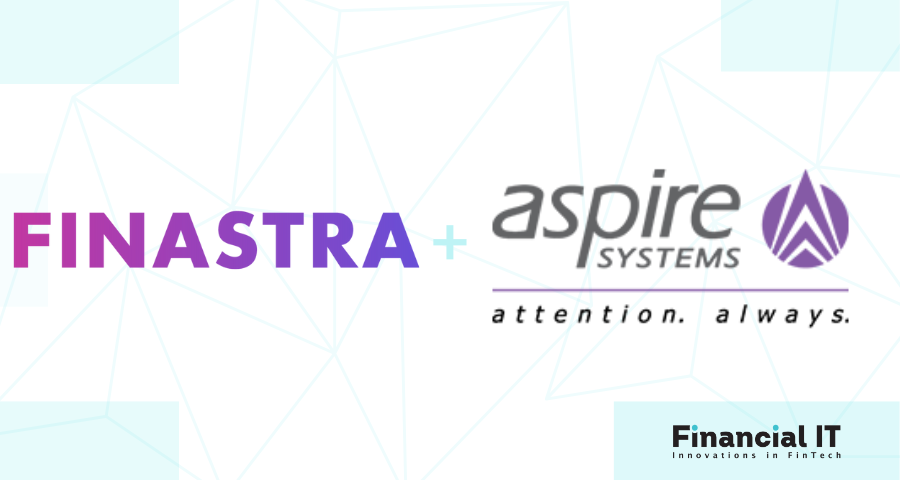
Finastra, a global provider of financial software applications and marketplaces, today announced its partnership with Aspire Systems, a global technology services firm, to enable financial institutions worldwide to transform their payments operations and accelerate their instant payments offerings. With Finastra’s Payments To Go and Aspire Systems’ implementation and system integration capabilities, customers will benefit from an end-to-end, multi-rail payments processing SaaS solution, available on Microsoft Azure. They will have direct access to networks such as TARGET Instant Payments Settlements (TIPS) from The European Central Bank, the US real time payments (RTP) and FedNow, and SWIFT.
“Facilitating instant payments is a key priority for banks, particularly as customer demand continues to soar,” said Sylvie Boucheron-Saunier, Global Chief Revenue Officer, Payments at Finastra. “As a highly agile and configurable solution, Payments To Go, available as a cloud-based managed service, enables banks to evolve with ongoing innovation and regulatory demands, quickly, at a low cost and with added security. By partnering with Aspire Systems, we can deliver our evergreen solution to financial institutions globally through the organization’s expertise in delivery and implementation, as well as its value-added services such as for Variable Recurring Payments, Request to Pay and Confirmation of Payee.”
Finastra has extensive experience in the payments industry, with its Global PAYplus solution recently named as best-in-class in Aite-Novarica Group’s Matrix Evaluation of Payment Hub Vendors. Payments To Go provides end-to-end payment processing as a scalable SaaS model, enabling banks to accelerate their instant payments services roll-out and deliver flexible digital payment offerings faster and more efficiently. By reducing complexity and operational costs, institutions can implement new offerings – such as the US FedNow network, the UK’s New Payments Architecture (NPA) and compliance with the proposed EU instant payments regulation – and drive business growth. Integrated with Finastra’s open platform for innovation, FusionFabric.cloud, they can also adopt value-added services quickly and seamlessly.
“With the shift to Payments 4.X, focusing on the customer experience, financial institutions are looking for a convergent payment solution that is compliant, composable and cost-effective,” said Suresh Ranganathan, Global Head of Banking and Financial Services at Aspire Systems. “With the combination of real time payment support, marketplace integration and Open Banking enablement, our partnership with Finastra will increase value for our customers and help them go to market faster and stay nimble. Finastra’s solution maturity, with Aspire’s technology and domain expertise, will accelerate customers’ strategic and tactical payment modernization efforts as the industry moves into Open Finance.”
Related News
- 02:00 am
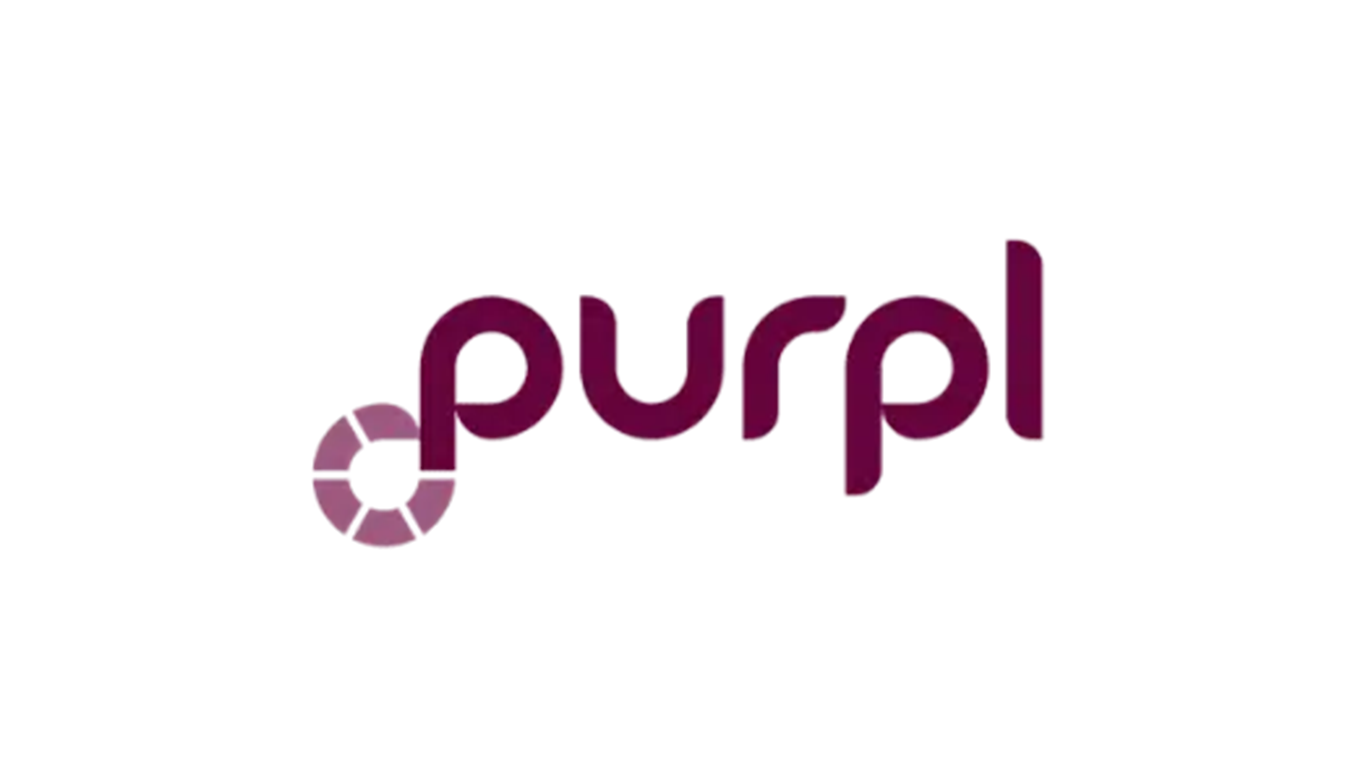
Purpl, a remittance and cash-out aggregator, today announced its successful go-live on Mambu’s cloud-native banking platform. Having secured its digital wallet licence, Purpl’s new offering will provide Lebanese citizens at home and abroad with seamless ways of transacting.
Purpl began its collaboration with Mambu in June 2022, and the implementation took six months. Customers can now easily access stored money to cash out in hard currency and will soon be able to pay for goods and services, transfer funds or make online purchases from any mobile device.
The appetite for digital wallets is expected to surge with the number of users to surpass 4.4 billion by 2025. Leveraging Mambu’s software-as-a-service (SaaS)-based and API-enabled technology, Purpl can add new functionalities and enhance existing features of its digital wallet to suit evolving customer needs.
Jean-Marie Khoueir, Co-founder and COO at Purpl: “We are operating in a region with a large number of financially-excluded people, and we exist to bridge this gap. Digital wallets provide a form of electronic money to those who otherwise cannot access traditional bank accounts, which is now the case of more than 80% of the Lebanese population. Underlying all this is a convenience factor and a more efficient and transparent user experience. Mambu enables us to live and breathe the digital- and customer-first model, ensuring that a broader range of users have access to essential financial services.”
Purpl is powered by Mambu and leverages Amazon Web Services (AWS) native services like EKS, RDS, Elasticache, Lambda, which enabled the deployment of the cloud-based digital wallet in just six months. Purpl is one of the first fintechs in the region to benefit from the global partnership between Mambu and AWS, which allows banks and financial institutions to operate from the cloud and enjoy a secure, modern infrastructure with lower operating costs and increased agility.
Charlotte Sanderson, Head of Global Technology FSI Partnerships at AWS: “In our decade-long partnership with Mambu we’ve focused on providing innovative solutions, solving technical challenges, and delivering value to mutual customers. Purpl is a prime example of how this collaboration can change the way financial services are delivered around the world. They have the scale and efficiency needed to make an impact in the region.”
Miljan Stamenkovic, GM Middle East & Africa at Mambu: “We sit at the heart of many neobanks and digital challengers in the Middle East as they scale their businesses and adopt the cloud. Our partnership with Purpl is no different. In the past half year, we went on the journey with them as they sought their digital wallet licence. This quick launch is a testament to all team’s efforts, as well as the strong demand in the market that Purpl is here to serve.”
Related News
- 09:00 am
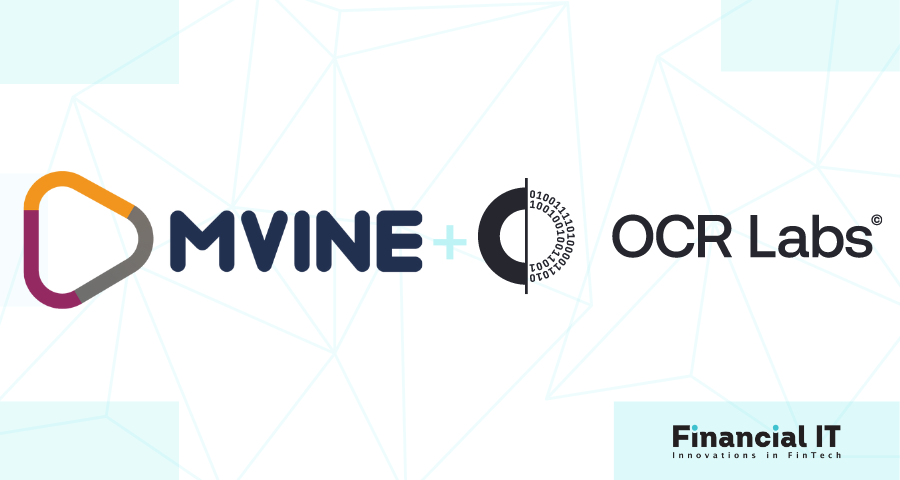
Frank Joshi, Director at Mvine Limited, said, “Mvine partnering with OCR Labs Global makes so much sense. Together, we are able to address customer demand for digital identity verification services and build upon all the work that has been done to confidently go to market with MvineID. This new proposition promises to disrupt by delivering fast and affordable identity verification checks to businesses according to their needs and budget.”
Russ Cohn, General Manager at OCR Labs Global, added: “With this partnership, we are confident we can support Mvine’s ambitious growth across multiple new exciting use cases, where strong identity verification facilitates easier and safer customer onboarding. With our digital identity verification services, Mvine's customers can provide all the services they need, with banking-grade secure technology and a simple, automated user experience.”
Related News
- 09:00 am

The fintech industry will continue to play a crucial role in the UK economy, despite recent challenges such as the collapse of Silicon Valley Bank and Credit Suisse, according to industry chiefs.
Speaking at the Parliament Street fintech summit last night, which was hosted by Dean Russell MP for Watford and chaired by Steven George-Hilley of Centropy PR, a panel of fintech experts hit out at critics of the industry and outlined their vision for the future of the sector.
On issues such as regulation, MP Mr Russell said: "If you regulate too soon you may kill innovation, but if you do regulate too late or incorrectly then there will be loopholes, this is a major challenge that the Fintech industry faces."
Jay Patel, Head of Product Management at regtech provider Encompass Corporation added: "Regulators have a role to play in our society but ultimately we need banks to look and interpret these regulations and make sure they are compliant for their customer base."
Meanwhile, Neh Thaker, Co-Founder of financial toolkit HedgeFlows said, "7 out of 10 SMEs could benefit from international expansion but the reality is that only 1 in 10 achieve it. SMEs don't currently get the support and tools to effectively break down the barriers to international trade."
Fintech entrepreneur Fraser Stewart, COO of Lyfeguard raised the issue of the skills crisis facing the industry. "We need access to education, reskilling and to show clear pathways through to Fintech. It's also clear more needs to be done around diversity, just 2% of Fintech owners are female."
While Khalid Talukder, co-founder of DKK Partners said: "We work in an industry where we look for efficiencies, we automate and lose the human aspect. A chatbot won't know what things people have in their wallet that can be commercialised and they don't give a personal touch."
Samni Akinmusire co-founder of ImaliPay said: “Fintech entrepreneurs are usually creative wanting to solve real-time problems. Innovation should follow regulations, but it can be complex. What do regulators do to catch up when innovation falls outside of regulations?”
Finally, Xavier De Pauw of kennek said: "Regulation typically goes hand in hand for B2C business models, but in the B2B space there are typically fewer regulations as it's dealing with professionals.”
Related News
- 08:00 am

London-based, award-winning green fintech ekko announces unique employee engagement platform powering positive, sustainable outcomes for your teams.
Against the backdrop of the ‘Great Resignation’, employers must find new ways to address the issues that matter most to their employees. Now ekko has made this task far easier with the launch of its ekko incentives solution.
Across the world, employees are increasingly demanding that their employers respond more effectively to environmental issues. Now, through the launch of its ekko incentives solution, ekko has made this task easier than ever.
The new solution, which can be deployed in less than a week, provides employees with a recycled plastic debit card and an award-winning app that calculates the carbon footprint of every purchase in real-time with nudges on how to shop more sustainably. The card plants trees and saves plastic from entering our oceans as it’s used, and every tap is carbon offset in partnership with Gold Standard. Organisations have their own bespoke dashboards showing their people’s impact, the forest they’ve planted and plastic they’ve saved, the solution also allows teams to compete on their sustainable impact and reduced carbon footprint every-day.
The timely launch will help businesses to respond to growing concerns that they are currently unaligned with their workforces regarding environmental values. In the UK, around 83% of workers believe their employers are not currently doing enough to tackle climate change. By contrast, only 11% of employees feel that their employers are responding effectively to this existential crisis, despite years of climate attention.
By enabling organisations to invite employees to join global sustainability projects, ekko incentives is going some way to quell this concern. The new solution aims to align firms of any size with the values of their employees, allowing them to quickly deploy tools that connect individuals with the environmental issues they care about in a meaningful and measurable way. In doing so, ekko incentives is helping to engender happier, and more environmentally responsible workforces.
ekko incentives represents the perfect solution for companies who want to streamline the process of making a measurable, sustainable impact at a business level and can be used by employees for personal use or to track expenses. With the solution, users can gain insights into the environmental impact of the goods they buy and offset that impact with a range of independently verified and audited carbon offset projects.
The transparent system provides an impactful tool in pursuing corporate ESG and can be used to encourage more environmentally responsible behaviour in a timely and cost-effective manner. For business leaders, the solution could be put in place in a matter of days so that organisations can get on with improving their sustainability performance. As such, the new solution could be the perfect tonic for growing environmental concerns and escalating resignation rates. This is important, with 65% of employees stating they would be more likely to work for a company with robust environmental policies.
Speaking on the launch of the ekko incentives solution, the company’s co-founder and CEO, Oli Cook commented: “The environment is an emotional subject and something we feel strongly about as a society. Our mission is to empower millions of people and businesses around the world to have a positive impact on the environment around them.
“Regardless of industry, every business has an obligation to improve its impact on the planet and support their people. Our real-time, innovative solution gives your teams meaningful, measurable and tangible understanding of their impact and how to make positive steps, whilst giving business leaders the tools to engage their teams and report their impact. In doing so, the solution helps businesses on their own sustainability journeys.”
The launch of ekko incentives comes after the company's recent announcement of a series of new unique product updates. The exciting update opened the company’s service up to employers, banks, and payment providers for the first time. Now, ekko is expected to announce the details of its expert advisory board in the coming weeks as part of its broader plans for significant company growth in 2023.
Related News
- 03:00 am
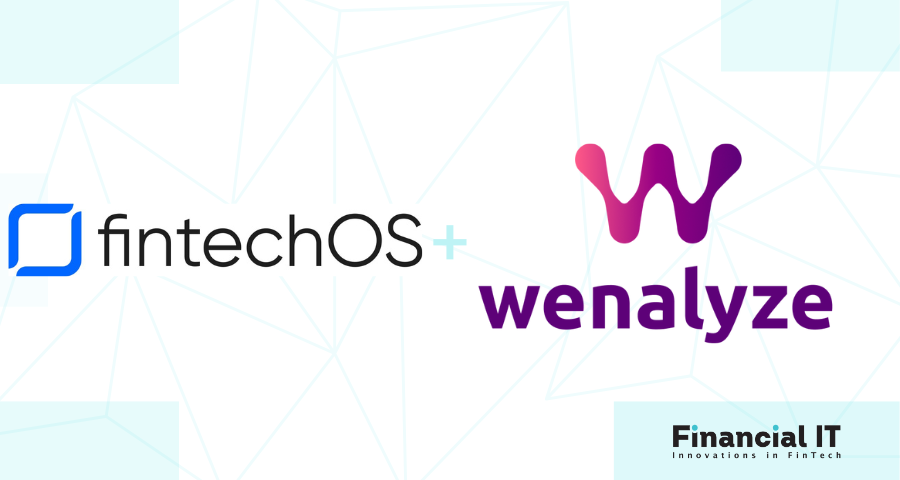
Wenalyze, a leading provider of Open Data analytics software for the SME insurance industry, and FintechOS, the leading fintech enablement platform, today announced a new partnership that will provide insurers with advanced risk analysis and digital capabilities.
FintechOS's fintech enablement platform enables insurers to quickly develop and deploy new insurance products across a range of digital channels, as well as to optimize and automate their back-end operations. The partnership between Wenalyze and FintechOS will bring together Wenalyze's powerful risk analysis software with the FintechOS platform to provide insurance companies with a more comprehensive view of risk. Leveraging Wenalyze in conjunction with FintechOS, insurers will be able to assess risk, develop custom insurance products, and price policies more accurately. With Wenalyze’s Open Data analytics software, customers will have up-to-date insights into risk.
"Our partnership with FintechOS enables us to offer insurers a comprehensive set of risk analysis tools that can help them improve their risk management capabilities and pricing accuracy," said Carlos Albo, CEO of Wenalyze. "This will allow insurance companies to create more tailored and personalised insurance products, better serving their SME customers”.
In December FintechOS announced its insurance revenue increased by 300% YoY –growth driven by winning major new clients, such as Admiral Insurance Group, and expanding partnerships with existing customers, like Howden Group. FintechOS has also entered new markets, such as working with insurers like Vienna Insurance Group to enable health insurance products. FintechOS’s partnership with Wenalyze furthers FintechOS’s investment in the insurance technology market.
Teo Blidarus, CEO of FintechOS, added, "The data that the insurance industry relies on is more often than not wrong or outdated. Wenalyze uses AI and Open Data to help insurers obtain actionable intelligence that makes risk assessment and underwriting processes simpler and more precise. Addressing this underappreciated problem is critical to risk management and we look forward to bringing this unique and powerful capability to our existing and future customers.”
Related News
- 05:00 am
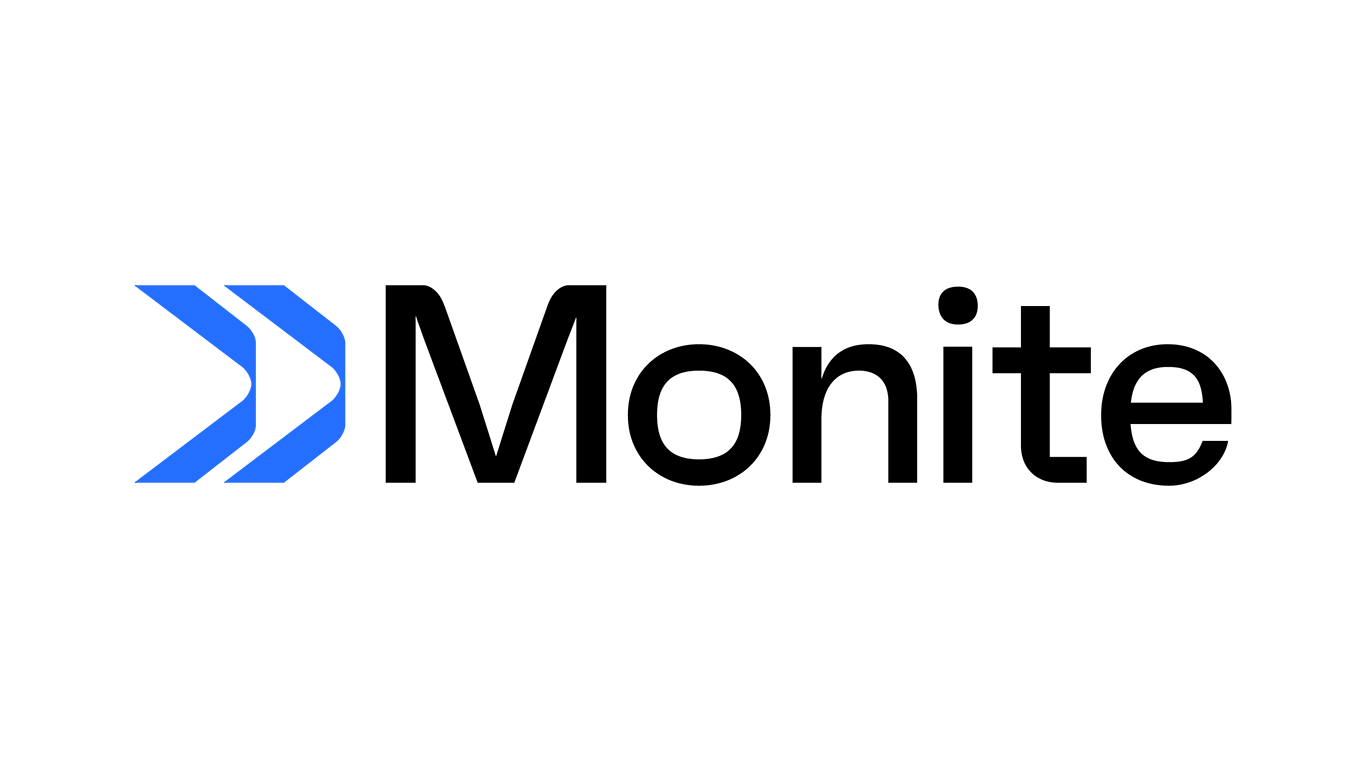
Monite, an API-first embedded finance workflows startup, has secured an aggregate $10M in Seed financing to help platforms working with SMBs capitalize on hassle-free B2B payments automation for their clients.
According to recent projections, the B2B payments market is expected to soar to $200 trillion by 2028. Unfortunately, many small and medium-sized businesses (SMBs) still rely on manual processing and use multiple tools to manage their payments, which often results in late invoices and lost revenue. An average SMB uses checks or cash close to 50% of the time and still receives almost 43% of its invoices past due. Without solutions available to capture all of a company’s industry-specific needs, SMBs are often forced to use five or more external tools to manage their payments. As of 2022, more than 40% of finance managers estimate that approximately 5% of their company’s revenue is lost each month to payment process inefficiencies. Monite offers a solution that addresses these pain points, providing businesses with tailored automation by integrating with the platforms that SMBs already use regularly.
Monite helps B2B platforms become a comprehensive solution for their clients by enabling the integration of customizable workflows that are specific to the industry they serve, including management of incoming or outgoing invoices and expense management. Workflows like invoicing or payables automation serve as the backbone of SMB operations, and they in turn form the basis for integrating additional financial products.
For those platforms that work with SMBs—SaaS providers, neobanks, and marketplaces—Monite’s finance workflows API creates new revenue streams for platforms because they are able to charge payment processing fees and additional SaaS income, in each case without investing the time and expense required to produce and operate such tools in-house, which can require 12 to 18 months and $3-5 million in upfront costs and millions of dollars to operate. Platforms can readily embed Monite's customizable workflows, including invoice and supplier management, into their existing interface, enabling them to establish new revenue channels by increasing SaaS pricing bundles and charging processing fees for payments on their platform. This results in a 2-5x increase in revenue per customer and stickier relationships for the platforms, while SMBs save time and reduce processing costs from an average of $6.50 to $1.45 per invoice, receive tailored automation of their costly routine, all within a platform that is already part of their workflow.
Monite recently closed $5 million in Seed funding in a round led by Third Prime, which was joined by S16, Audeo Ventures, and Long Run Capital. This investment follows a $5 million Seed led by Point72 Ventures in early 2022 and brings Monite's total Seed funding to $10 million. In addition to this seasoned group of FinTech investors, Monite is backed by esteemed industry leaders with extensive expertise and hands-on experience in FinTech and embedded finance, including Nium founder Prajit Nanu, Penta co-founder Igor Kuschnir, Klarna founder Victor Jacobsson, Mollie founder Adriaan Mol, ex-PayPal senior executive Phil Valka, and Plaid executive Jason Pate.
Ivan Maryasin, co-founder and CEO of Monite, said, “We are happy to be backed by thought leaders of the embedded finance space with huge expertise and hands-on experience in FinTech, who clearly understand the needs of the current market. Only 5-10% of SMBs use a modern finance stack, while 79% of them still do their accounts payable manually. SMBs remain technically underserved, while B2B neobanks, eCommerce and B2B SaaS businesses have an incredible opportunity here to grow their revenue with no additional marketing expenses. Digitalizing finance workflows through existing SaaS players is a game-changer, and we allow our clients to become an all-in-one financial OS for their industry."
Mike Kim, Partner at Third Prime, added, “From a demand perspective, there’s a real gap for Monite to fill. Monite's innovative approach to B2B payments automation through better contextual distribution has the potential to revolutionize a market that has been historically resistant to innovation by streamlining payment processes and eliminating the headaches of manual processing. By providing a tailored and efficient solution through its API-first finance workflows, Monite has the power to unlock an enormous opportunity for the B2B sector, both for SMBs and the platforms serving them, in a repeatable and durable way.”
Currently, Monite has ten clients in Europe and the US and plans to close more deals in the next few months. Its new funding will be used to develop new product features, cover more payment and financial services integrations, and expand its reach in the growing B2B payments market.
Related News

Amal Ahmed
Director of Financial Services and EMEA Marketing at Signifyd
2023 is off to a rocky start for retailers. see more









